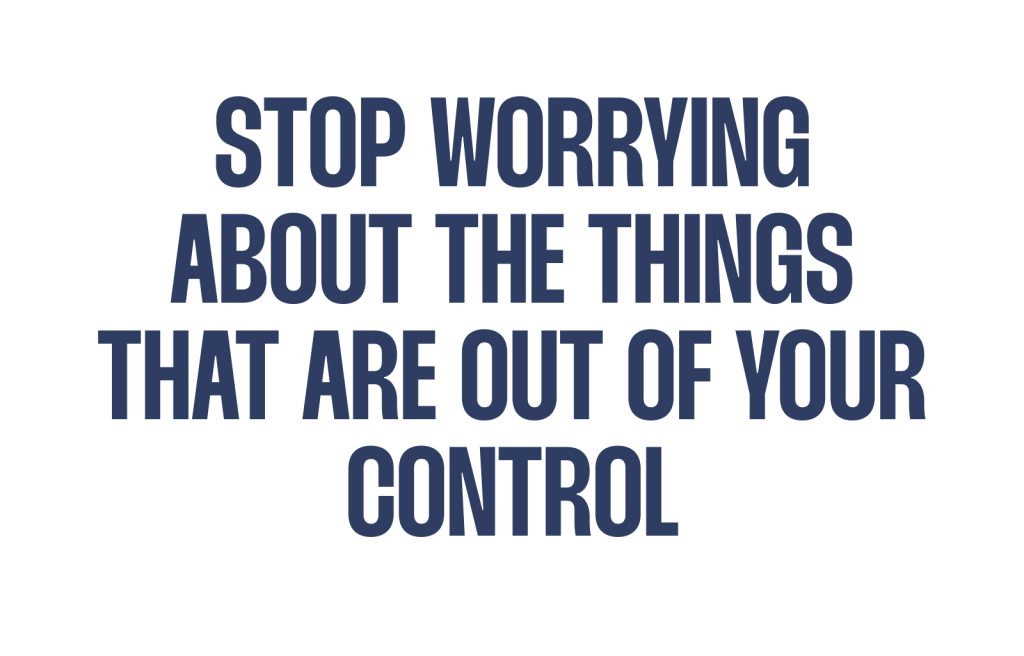Stop Worrying About the Things That Are Out of Your Control

Stop Worrying About the Things That Are Out of Your Control: Life is full of uncertainties, and sometimes it’s easy to get caught up in worrying about the future or ruminating about the past. While it’s normal to feel anxious or stressed, it’s important to remember that you have the power to control your thoughts and actions in the present moment.
Discover how to stop worrying about the things that are out of your control and regain a sense of peace. Learn practical tips to focus on what you can control, practice mindfulness, take action, let go of perfection, practice self-care, and seek support. Take charge of your thoughts and actions today!
Instead of stressing over things you cannot change, focus on what you can do to make a positive impact. Here are some tips to help you stop worrying about the things that are out of your control:
Identify What You Can Control:
The first step to stop worrying about the things that are out of your control is to identify what you can control. This can include your thoughts, actions, and reactions to different situations. When you focus on what you can control, you can start to take positive steps towards improving your situation.
Practice Mindfulness:
Mindfulness is the practice of being present and fully engaged in the current moment. When you practice mindfulness, you can learn to observe your thoughts and feelings without judgment. This can help you to let go of worries and anxieties and focus on the present moment.
Take Action:
If there is something you can do to improve your situation, take action. This can help to reduce your anxiety and give you a sense of control over your life. Whether it’s making a plan, setting goals, or taking small steps towards a larger goal, taking action can help you to feel more empowered and in control.
Let Go of Perfection:
Perfectionism can be a major source of stress and anxiety. When you strive for perfection, you set yourself up for disappointment and failure. Instead of focusing on being perfect, focus on doing your best and making progress towards your goals.
Practice Self-Care:
Taking care of yourself is essential for managing stress and anxiety. This can include getting enough sleep, eating a healthy diet, exercising regularly, and practicing relaxation techniques such as yoga or meditation. When you take care of yourself, you can better cope with the challenges of life.
Seek Support:
If you are struggling to manage your worries and anxiety, seek support from a trusted friend, family member, or mental health professional. Talking about your concerns can help you to process your emotions and gain a fresh perspective on your situation.
Worrying about the things that are out of your control can be a major source of stress and anxiety. However, by focusing on what you can control, practicing mindfulness, taking action, letting go of perfection, practicing self-care, and seeking support, you can learn to manage your worries and live a more fulfilling life. Remember, you have the power to control your thoughts and actions in the present moment.
How can I stop worrying about things that are out of my control?
- To stop worrying about things you can’t control, start by identifying what you can control and focus your energy on those areas. Practice mindfulness to stay present, take action where you can, let go of perfectionism, prioritize self-care, and seek support when needed.
Why is it important to let go of perfection?
- Perfectionism can lead to stress and anxiety, as it sets unrealistic expectations and can result in constant self-criticism. Letting go of perfection allows you to focus on progress and doing your best rather than striving for an unattainable standard.
How can practicing self-care help with worrying about the uncontrollable?
- Practicing self-care, such as getting enough sleep, eating well, exercising, and engaging in relaxation techniques, helps you build resilience and cope better with stress. Taking care of your physical and mental well-being enables you to approach challenges with a clearer and more balanced mindset.

















